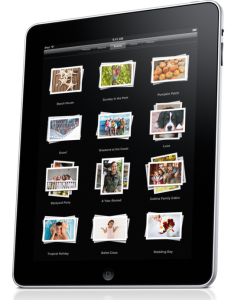Editor’s note: Forbes changed the story removing the offensive material. Thanks to the cache at Bing, here is a link to the original story in all its glory.
It’s very rare that I actually get angry while reading an article on the Web. Sometimes I shake my head, other times I disagree, sometimes I thoroughly enjoy the read — today I got mad.  Writing for Forbes.com, Roger Kay not only questioned Apple’s commitment to the blind, he outright insulted the company and blind users in general. Check out these quotes from the Forbes story.
Writing for Forbes.com, Roger Kay not only questioned Apple’s commitment to the blind, he outright insulted the company and blind users in general. Check out these quotes from the Forbes story.
For example, one could make the argument that blind people represent only a tiny slice of the total market. In the U.S., people who are legally blind represent about 3% of the population. When your product is so well optimized for the other 97%, why bother?
And this:
On the hypothetical playground, Apple is the cool kid, impressing wannabe cool kids. The blind kid in the wheelchair never had a chance, and the cool kids don’t care.
Seriously? I doubt that blind people think of themselves like that. I spent some time years ago working with blind kids and teaching them activities like soccer. Not one of them thought of themselves or acted like Kay portrays them here.
Let’s move on to Apple and if they are actually ignoring the blind when making products.
Kay would have to look no farther than the website he was writing for to see that he may be alone in his thoughts. In an April 2010 article on Forbes.com, Benjamin Clymer said:
They [the blind] care more about how Apple products actually work. And while the iPad may be Apple’s most controversial launch in recent memory, the blind community is unanimous in its support.
And this:
Computer nerds, tech columnists and the general public may not know where the iPad fits into the existing media consumption landscape–but the blind and visually impaired see it as the only e-reader worth owning. Call it further proof that Apple is more than just a pretty face.
In January, the National Federation of the Blind commended Apple for its VoiceOver app on the iPad. “Blind consumers, like our sighted friends and colleagues, will be able to share in the experience of using this new device from the moment we take it out of the box,” said Dr. Marc Maurer, President of the National Federation of the Blind.
The American Foundation for the Blind gave Apple an award in 2009 “for making significant accessibility improvements to the latest versions of the iPod Nano and the iTunes software, and for installing the VoiceOver screen reading software into all Apple computers.”
Robin Spinks, principal manager of digital accessibility at the Royal National Institute of Blind People said in June that “When it comes to embedding accessibility, Apple has set the standard in recent years. It is now up to other manufacturers to follow their lead.”
Surely these people know more about how Apple devices work for the blind than Roger Kay.
